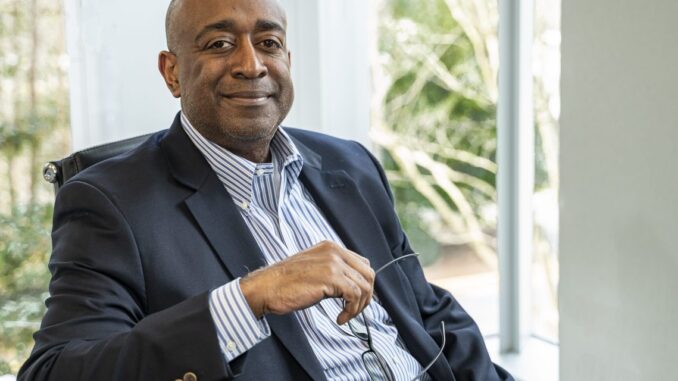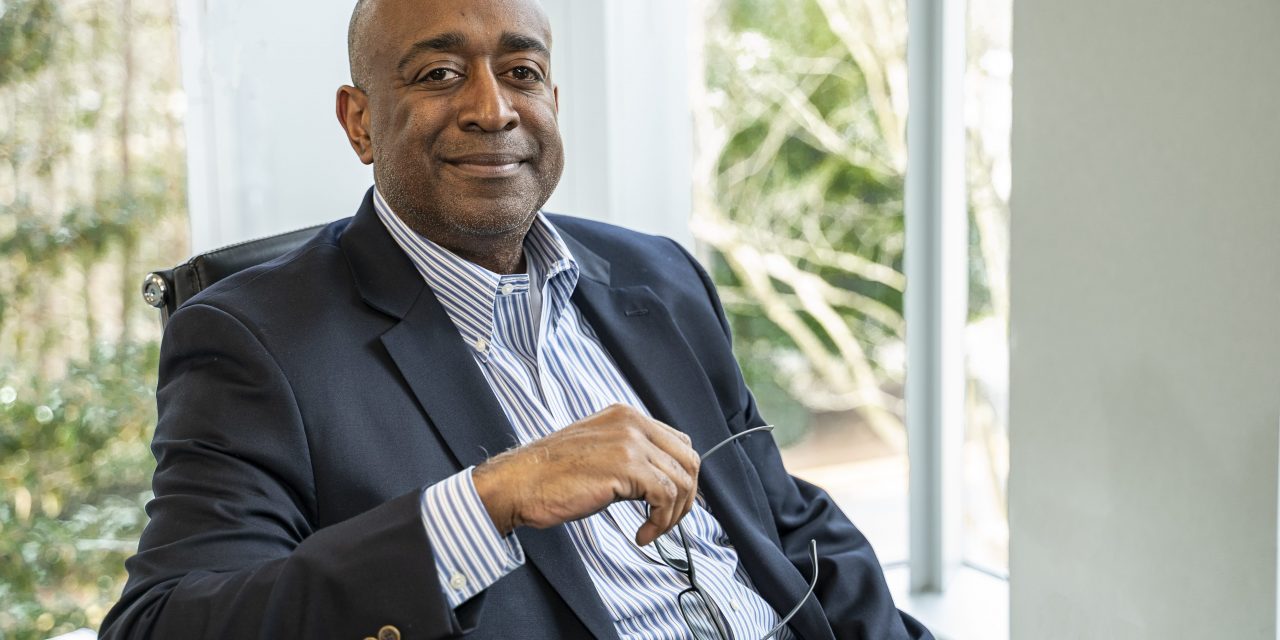
 Let me pause here to say that I am not an HBCU alum. When I applied to colleges, HBCUs weren’t even under my consideration because they weren’t a part of my family tradition, and I had gotten a scholarship to a local university. But as a Black man in the South, as a marketing CEO, as a Certified Diversity Executive and as a business leader who wants to build the best environment for innovation and productivity, what HBCUs represent is a powerful example of both the value of belonging and of a failure to invest in strategic brand positioning.
Let me pause here to say that I am not an HBCU alum. When I applied to colleges, HBCUs weren’t even under my consideration because they weren’t a part of my family tradition, and I had gotten a scholarship to a local university. But as a Black man in the South, as a marketing CEO, as a Certified Diversity Executive and as a business leader who wants to build the best environment for innovation and productivity, what HBCUs represent is a powerful example of both the value of belonging and of a failure to invest in strategic brand positioning.
A LEGACY OF BELONGING
According to the United Negro College Fund, there are more than 100 HBCUs in the country, comprising only 3% of American colleges but accounting for nearly 22% of bachelor’s degrees awarded to Black students. More than 90% of HBCUs are located in the South. Yet even in the South, they are often ignored, undervalued and underfunded. A few weeks ago when I first started drafting this article, I asked some HBCU graduates in my network for their insights on HBCU strengths and needs. What I heard from them was partly about tradition or family legacy but mostly about inclusion and belonging.
One friend told me she wanted to acknowledge that it was not very long ago when HBCUs were among the only options for Black students to earn a college degree. Her comments echoed a sentiment I also heard from Michele Roberts, Executive Director of the National Basketball Players Association, who said “HBCUs provided premium education to our communities at a time when access to higher learning was denied to us. They were there – and have remained there – for us. We now stand with them.” Modern business can learn a lesson here about how to build long-term loyalty and trust by authentically investing in underserved groups. So many stories about HBCUs mention this sense of community support.
However, most of what I heard from my friends was really about the human desire to be challenged: to do our best work in a place where anything else is unacceptable. As another friend wrote, “I chose an HBCU because I wanted to be in an environment that would encourage, inspire, and push me to greatness.” Reading that comment, I thought, this is what inclusion does. This is psychological safety. This is what it means to hold high expectations which motivate people to do great work, without the social and emotional fatigue of being repeatedly and systemically excluded.
For many Black students who have been consistently underrepresented and often ignored by an inequitable education system, HBCUs offer a chance to excel in an environment intentionally designed to support them. As Jayla Jones puts it in an article for The Undefeated, “at my previous PWI [predominantly white institution], my presence felt forced. I felt like if this was going to be my college experience, then I had to make the best of it. But at my HBCU, I was a natural. I felt free, open and seen.” When you feel that way, you can reach a little further. You can push toward bigger and better wins, both for yourself and for your team. In that sense, HBCUs show the raw power of inclusion.
GROWING THE HBCU BRAND
However, where most HBCUs are failing is that they don’t often invest in telling their own stories — stories of inclusion, excellence, and success that prove why an HBCU education is just as good or better than the one you’ll get from your local PWI. Did you know that, according to the Thurgood Marshall College Fund, even the most expensive HBCUs in the country still manage to keep their tuition costs lower than national average? Did you know, according to Inside Higher Ed, “economic mobility is better for students who attend historically black colleges and universities than those who attend non-HBCUs”?
The HBCU alums in my network tell these stories well, but I rarely hear them from the colleges themselves. On the other hand, most of the PWIs that HBCUs are competing against are already investing huge amounts of time, money, and effort into their marketing strategies. HBCUs aren’t doing that as well, and it seems from the outside like they’re only waiting for other people to prove their value and push them into the spotlight they deserve.
As a marketer and as a diversity leader who is looking from the outside in, I see tremendous opportunity for HBCUs to seize this moment, when so many people and organizations want to see them shine, and grow their brand message to highlight not only all the great work they have done in the past but how future students stand to benefit from their unique value, culture, and perspectives. Today’s higher education landscape is exceptionally competitive. If they want to win, HBCUs must invest in telling their own stories of impact, potential, and success.
NURTURING A DIVERSE TALENT PIPELINE, INTERNALLY AND EXTERNALLY
The last few years have also seen a huge uptick in corporate HBCU partnerships that nurture students as future leaders and professionals. Large corporations like Boeing, HP, IBM, and Goldman Sachs are building extensive partnerships programs that feed money into underserved HBCUs and start to build more diverse talent pipelines. Smaller businesses who want to show support for the values of diversity, equity, and inclusion (DEI) are also creating scholarships and paid internships for HBCU students. In fact, that’s one of the steps I recommend when my colleagues want to get started with DEI.
But in balance to those partnerships and programs, organizations also need to consider how they can create environments of inclusion within their companies, so that an HBCU college experience isn’t a student’s first and last chance to feel a true sense of belonging at work. As leaders, let’s look at what we’re doing now to prepare our organizations and small businesses to receive, to support and to grow more HBCU students. How are we training our middle managers who have never led a multicultural staff? How are we cultivating a culture of inclusion for all employees of all identities and encouraging people to advocate for each other so that everyone can do great work?
Yes, HBCUs need and deserve our support. They’ve been doing great work for far too long with far too little credit. Yet it’s also the HBCUs responsibility to invest in better storytelling and to create a sense of urgency for modern business leaders who one day hope to hire HBCU graduates. By doing so, HBCUs can start to prove not only their legacies of inclusion and success but also their promise and potential for the future.
ABOUT THE AUTHOR
Donald Thompson is a serial entrepreneur, public speaker, author, podcaster, and Executive Coach, recently named one of Forbes’ Next 1000: Upstart Entrepreneurs Redefining the American Dream. He is currently the CEO of Walk West, an award-winning digital marketing firm, and co-founder and CEO of The Diversity Movement, a technology-driven diversity, equity and inclusion consultancy. He is also a board member for several organizations in healthcare, technology, marketing, sports and entertainment, a Certified Diversity Executive (CDE), and a thought leader on goal achievement and influencing company culture. Connect with Donald through LinkedIn or learn more by visiting donaldthompson.com.
Editor’s note: Veteran entrepreneur and investor Donald Thompson is a regular contributor to WRAL TechWire. His columns appear on Wednesdays.

Be the first to comment